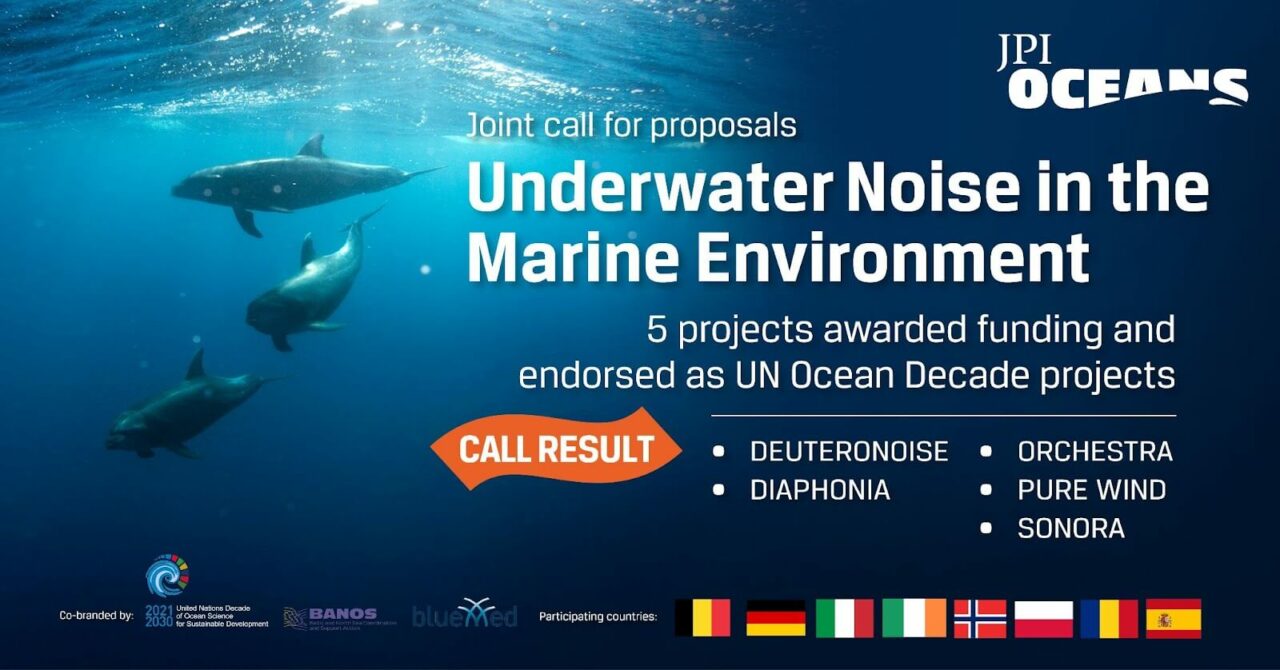Lead institution:
JPI Oceans – Belgium
The Joint Call on Underwater Noise in the Marine Environment offers an opportunity to address a systemic approach to ocean challenges, support policy and governance, and support experimental research activities on the emerging issue of the acoustic pollution of oceans and seas.
Germany, Italy, Norway, Poland, Romania, Spain and JPI Oceans are jointly launching this call for research and innovation projects. The call is co-branded by BANOS, BlueMed and NOAA. Mankind is noisy by nature, and the impact of noise on human societies seems well known.
With growing awareness, our society – scientific researchers, non-governmental organizations, policy makers, and citizens – recognizes anthropogenic noise as an emerging pollutant and threat for subaquatic environments. Underwater acoustic pollution impacts on the health of marine animal populations and biological productivity. The subject holds paramount scientific value, with large relevance for national regulatory frameworks and potential significant impact through public perception.
The Joint Call will address two main themes:
- (1) Effects of anthropogenic noise pollution on marine ecosystems: All acoustical environment components (source – medium – receiver) need to be understood for measurements and modelling. The most important anthropogenic noise sources are sonar, seismic exploration, offshore wind farms, detonations and shipping. The risk for animal populations from acoustic disturbance is a function of acoustic signal characteristics, biological species identity, and the ambient environmental conditions. To account for the complexity, a coordinated system approach is desirable. The evaluation of impacts should be considered in an ecological framework considering the effects on the full trophic network that connects invertebrates such as zooplankton to top predators (fish and marine mammals) and establish links to fishery activities.
- (2) Innovative seismic sources as an option for quieter and effective alternatives to conventional marine geophysical exploration: Industry and researchers should work closely together to address the challenge of developing alternative more quiet acoustic sources for geophysical exploration of comparable efficiency, which, at the same time, cause a lower impact on marine fauna. Experimental scientific research is needed to evaluate the efficiency and impact of alternative acoustic sources, such as industrial scale marine vibrators and other methods for acoustic energy spread-out, in comparison to existing seismic airguns.
A total amount of up to € ~7.5 million has been reserved by the funding partners from Germany, Italy, Norway, Poland, Romania and Spain. Applicants from countries not funding this call can participate with their own cash or in-kind resources.
Start Date: 20/12/2021
End Date: 31/12/2025
Lead Contact: Thorsten Kiefer (thorsten.kiefer@jpi-oceans.eu)
